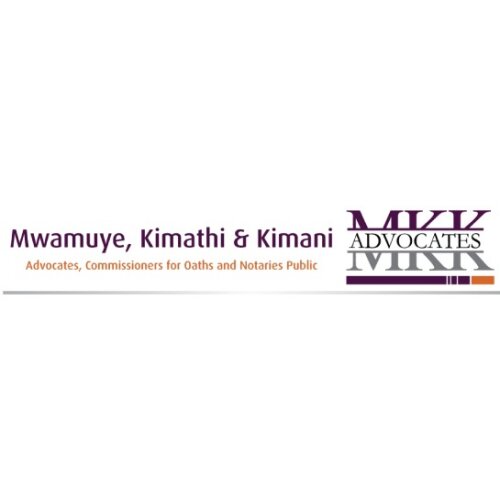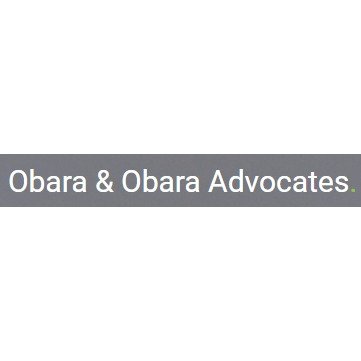Best Wrongful Termination Lawyers in Kisumu
Share your needs with us, get contacted by law firms.
Free. Takes 2 min.
List of the best lawyers in Kisumu, Kenya
About Wrongful Termination Law in Kisumu, Kenya:
Wrongful termination refers to the unlawful dismissal of an employee from their job. In Kisumu, Kenya, there are specific laws and regulations that protect employees from being unjustly fired. These laws aim to ensure fairness and prevent employers from terminating an employee without a valid reason or in violation of their rights.
Why You May Need a Lawyer:
You may require legal help in cases of wrongful termination if you have experienced any of the following situations:
- Dismissal due to discrimination based on race, gender, religion, or any other protected characteristic.
- Termination in retaliation for reporting workplace misconduct, such as harassment, safety violations, or illegal activities of the employer.
- Unlawful firing without proper notice or severance pay.
- Discharge for engaging in lawful activities outside of work hours, such as political affiliation, union involvement, or personal beliefs.
Local Laws Overview:
Under the Kenyan employment laws, wrongful termination is primarily governed by the Employment Act. Some key aspects include:
- An employer must have a valid and justifiable reason for terminating an employee.
- An employee is entitled to written notice or payment in lieu of notice.
- An employer must provide severance pay if the employee is terminated due to redundancy.
- Discrimination, harassment, and retaliation are strictly prohibited in the workplace.
Frequently Asked Questions:
1. Can I sue for wrongful termination in Kisumu, Kenya?
Yes, you can bring a legal claim against your employer if you believe you have been wrongfully terminated. It is advisable to consult with an employment lawyer to evaluate the merits of your case.
2. What remedies are available for wrongful termination?
If successful, you may be entitled to reinstatement, compensation for lost wages, compensation for emotional distress, or any other appropriate remedies as determined by the court.
3. Is there a time limit to file a wrongful termination claim?
Yes, you must file your claim within three years from the date of termination. However, it is recommended to take legal action as soon as possible to preserve evidence and increase your chances of a successful case.
4. Can I negotiate a settlement for wrongful termination?
Yes, it is possible to negotiate a settlement with your employer to resolve the matter outside of court. Having a lawyer to assist you can help ensure a fair settlement is reached.
5. How much will hiring a lawyer for wrongful termination cost?
The cost of legal representation may vary depending on various factors, such as the complexity of your case and the lawyer's experience. Many lawyers offer initial consultations for free or at a reduced cost, allowing you to discuss fees and payment arrangements.
Additional Resources:
Here are some additional resources that can be helpful for individuals seeking legal advice or support regarding wrongful termination in Kisumu, Kenya:
- Kenya Law: www.kenyalaw.org
- Kenya National Commission on Human Rights: www.knchr.org
- Law Society of Kenya: www.lsk.or.ke
Next Steps:
If you believe you have been wrongfully terminated, it is important to take the following steps:
- Gather and preserve any evidence related to your termination, such as emails, employment contracts, performance evaluations, or witnesses.
- Consult with an experienced employment lawyer to evaluate your case and understand your legal rights.
- Follow your lawyer's advice and instructions regarding filing a claim or negotiating a settlement.
- Keep track of important deadlines, such as the statute of limitations, to ensure your rights are protected.
- Maintain open communication with your lawyer and provide any necessary documentation or information required for your case.
Lawzana helps you find the best lawyers and law firms in Kisumu through a curated and pre-screened list of qualified legal professionals. Our platform offers rankings and detailed profiles of attorneys and law firms, allowing you to compare based on practice areas, including Wrongful Termination, experience, and client feedback.
Each profile includes a description of the firm's areas of practice, client reviews, team members and partners, year of establishment, spoken languages, office locations, contact information, social media presence, and any published articles or resources. Most firms on our platform speak English and are experienced in both local and international legal matters.
Get a quote from top-rated law firms in Kisumu, Kenya — quickly, securely, and without unnecessary hassle.
Disclaimer:
The information provided on this page is for general informational purposes only and does not constitute legal advice. While we strive to ensure the accuracy and relevance of the content, legal information may change over time, and interpretations of the law can vary. You should always consult with a qualified legal professional for advice specific to your situation.
We disclaim all liability for actions taken or not taken based on the content of this page. If you believe any information is incorrect or outdated, please contact us, and we will review and update it where appropriate.













